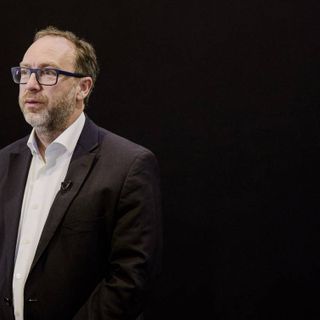December 2, 201913 min read, 2517 words
Published: December 2, 2019 | 13 min read, 2517 words
In 2017, Jimmy “Jimbo” Wales – the Wikipedia cofounder whose plaintive face used to haunt the free encyclopedia’s homepage during fundraising campaigns – decided to save journalism. As an avid consumer of news, The Guardian board member, and all-around internet wise man, he had n...
CRITIC REVIEWS
Well Sourced
December 3, 2019
The interviews with former WikiTrib journalists are what does it for me, especially the one or two who speak on record (I really don't like off-the-record sources). I am assuming the basic history is correct, but that's where I don't recall the history myself to speak to that.
Beyond that, it's these two quotes that have me believing this is a solid and accurate story:
_“For the general public [collaborating to WikiTribune] it's hard to do reporting – and for no money, which is a big ask,” Bale says._
_“Jimmy’s frame of reference about journalism is that it’s easy, it’s just a nice turn of phrase,” Peter Bale says._
Yup. Big corporations make two distinct and incorrect assumptions: 1) that average people care more than they do and 2) that writing journalism is easy enough so that the average person really doesn't need training.
December 3, 2019
Surface Level
December 18, 2019
A particularly egregious example of navel-gazing, in this instance with regard to journalism. I almost labeled this as satire but decided upon surface level because well, it's a superficial look at one individual's effort to redefine, so to speak, journalism. Whenever the words "professional journalist" are mentioned the reader would be wise to recall the inimitable Samuel Langhorne Clemens on the subject:
"I am personally acquainted with hundreds of journalists, and the opinion of the majority of them would not be worth tuppence in private, but when they speak in print it is the newspaper that is talking (the pygmy scribe is not visible) and then their utterances shake the community like the thunders of prophecy."
- Mark Twain
Without offering a personal opinion, it has been much discussed over the many preceding decades that once journalism, or rather, reporting, which may more accurately describe the work, became something to profit from as a business the bell of its decline began to toll.
Additionally, many scholars have expressed doubts as to the actual "profession" of journalism. Arguing that the very concept of a journalist class, if you will, is legally irrelevant and in direct opposition to the Constitution, which makes every citizen a journalist in equal standing.
Not a worthwhile read. Unless of course, one finds it interesting and informative to hear some individuals caterwaul over the course of nearly two thousand words about something specific and problematic only to themselves.
The outlet (full disclosure: I have been a subscriber since 1997, it was founded in 1993, and used to be referred to as the 'Rolling Stone' of technology) has fallen far, strayed significantly from its roots, and frankly speaking, is barely worth reading anymore.
In some circles this type of article would be considered just one of many reasons for the magazine's decline.
All that being said, I trust that the reader will forgive any perceived editorializing, which if present, was unintended and hopefully find this review useful.
December 18, 2019
PUBLIC REVIEWS
Great Context
December 2, 2019
This is a fantastic, in-depth look at WikiTribune and Jimmy Wale's decision to pivot into crowdsourced fact-checking of articles. Sounds familiar *cough cough. Author Gian Volpicelli provides a ton of great content in a balanced way, hopefull that WikiTribune can solve some of our media problems while remaining skeptical of the road ahead.
December 2, 2019
Great Context
December 3, 2019
Once we get over the idea that 'ask' is a noun according to the "see we're hip" wired style guide, the article itself is actually a fine piece of writing. Included in the wealth of context is a great story about hubris, entitlement and reflection, allowing the bulk of detailed writing to flow like it should. Would only we could ditch pandering to the kids and sales representatives with this week's "let's do lunch" cliche.
December 3, 2019
Investigative
December 27, 2019
Resonably thorough explanation as to why the wiki model of information gathering and editing doesn't work well in contemporary journalism. I do admit bias, in that it seems to me such a model for journalism would be necesssarily either unwieldy or less than open. I would have been surprised had this effort succeeded.
Having said that: this article does go into some depth, as to why the Wiki-Journal model of news reporting didn't succeed. To say that one project can 'save journalism' is like saying one car can save the automotive industry, and that's simply not so. Even were this able to produce truly unbiased news, with journalism being a market, are there any buyers for that? That questin seems to not be much addressed.
But overall, a good effort to explain this issue.
December 27, 2019
